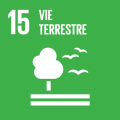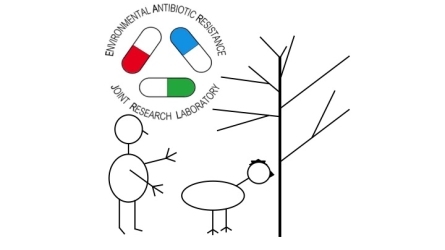
LIVE ONLINE COURSE - Resistance to antibiotics. A One Health vision: Healthy people, healthy animals and a safe environment
Description
This Summer Course will be face to face and you can also register in the live online in it, through the Zoom video conferencing platform of the Summer Courses. If you register in this Course you will participate in live online.
If you want to register in the face to face course, please click on FACE TO FACE to access the Course file.
The increase in infections by multi-resistant bacteria is one of the greatest threats to Public Health today. However, although the most dramatic consequences of the spread of antibiotic resistance are observed in the clinical setting, the problem has its origin in the environment, understood as agricultural, livestock and urban environments. This situation poses the challenge of integrating the different scenarios (i.e., clinical, agro-livestock and urban) in the search for solutions. Therefore, the World Health Organization (WHO) advocates the One Health approach as the only viable solution to address the problem of the emergence of antibiotic resistance in bacteria.
In this line, the Summer Course aims to study the role of the environment in this problem and, specifically, the adverse impact on human health and ecosystems derived from the presence in the environment of (i) antibiotics, (ii) antibiotic-resistant bacteria, (iii) antibiotic-resistance genes and (iv) mobile genetic elements involved in horizontal gene transfer. To this end, the latest techniques for studying the presence of these contaminants and also the effect of these contaminants in different clinical, agricultural and urban environments will be presented.
Objectives
The main objective of the Summer Course is to train students in the basic and applied knowledge to know the role of the environment in the generation and dissemination of antibiotic resistance and its impact on environmental and human health. To this end, the following specific objectives are pursued:
- To raise awareness of the problem of antibiotic resistance in clinical, agricultural, food and urban environments.
- To study in-depth the mechanisms of action of antibiotics and the mechanisms of bacterial resistance.
- To understand the processes of dissemination of antibiotic resistance among bacteria, the role of the environment and the consequences for human and environmental health.
- To present current methodologies for quantification and assessment of environmental risk associated with antibiotic resistance.
- To highlight the impact of climate change on the existing problem.
Activity directed to
- University student
- Teachers
- Professionals
Program
17-07-2020
Presentation by the Director of the activity
- Itziar Alkorta Calvo UPV/EHU - Profesora Titular / Directora del curso
- Manu Soto López UPV/EHU - Catedrático / Vicedirector del PiE
“The use of WGS to investigate antibiotic resistance (This speaker will participate through Zoom)“
- Paul Higgins University of Cologne | UOC • Institute for Medical Microbiology, Immunology and Hygiene - University Professor
“Ribosomes in antibiotic action and resistance“
- Paola Fucini CICBioGUNE - Ikerbasque Professor
- Sean Connell CICBioGUNE - Ikerbasque Professor
“Diseminación de resistencia a antibióticos “
- Itziar Alkorta Calvo UPV/EHU - Profesora Titular / Directora del curso
Break
“Utilidad de la transferencia de microbiota fecal para la erradicación de bacterias multirresistentes“
- Rosa del Campo Moreno Instituto Ramón y Cajal de Investigación Sanitaria del Servicio de Microbiología del Hospital Universitario Ramón y Cajal de Madrid - Investigadora
“Control de las resistencias a los antibióticos en el medioambiente hospitalario: del laboratorio a la clínica“
- Lucía Gallego Andrés UPV/EHU - Profesora Titular
Pausa para comer
“The transferable resistome of the agro-ecosystem - potentials and limitations of methods (This speaker will participate through Zoom)“
- Kornelia Smalla Julius Kühn-Institut - University Professor
“La resistencia a los antibióticos como motor de la ecología microbiana“
- Carlos Garbisu Crespo Neiker - Director Científico
“Resistencia a antibióticos en plantas de tratamientos de aguas residuales: abordando sistema de caja negra“
- Maria Estilita Ruiz Romera UPV/EHU - Profesora Titular
Synthesis
18-07-2020
“Papel de la agricultura en la transferencia de resistencias a antibióticos “
- Maite Lacuesta UPV/EHU - Profesora Titular
- Usue Pérez López UPV/EHU - Profesora agregada
“Alimentos: un eslabón más en la cadena de transmisión de residuos y genes de resistencia “
- Mailo Virto Lekuona UPV/EHU - Catedrática
“Ecología de la resistencia a antibióticos en productos lácteos “
- Baltasar Mayo Pérez Instituto de Productos Lácteos de Asturias (Ipla-CSIC)
Break
“Cómo detectar antibióticos en muestras ambientales“
- Néstor Etxebarria Loizate UPV/EHU - Catedrático
“Los antibióticos además de generar resistencia ¿producen efectos tóxicos en el medio ambiente? “
- Manu Soto López UPV/EHU - Catedrático
“Cambio climático, salud y resistencia a antibióticos “
- María José Sanz Sánchez BC3 - Directora
Synthesis
Directors

Itziar Alkorta Calvo
Universidad del País Vasco, Titular de Universidad
Itziar Alkorta, degree in Chemistry and Biochemistry PhD (UPV/EHU). She did a postdoctoral stay at the University of California, Berkeley. Currently, she is a lecturer in Biochemistry and Molecular Biology Dept, UPV/EHU. She directs a research group focused on understanding the molecular mechanism of bacterial conjugation to provide solutions to the problem of the spread of antibiotic resistance among bacteria. She has supervised numerous doctoral theses, master thesis and graduate works. Shee has written nearly 120 scientific and science dissemination articles, and she has led and participated in numerous research projects. She has been director of the Biofisika Institute (UPV/EHU, CSIC), Vice-Dean of the Faculty of Science and Technology and member of the Board Committee of the Spanish Society of Biochemistry and Molecular Biology. Since 2017 she is a member of AKADEME II. Currently, she is the coordinator of the Joint Research Laboratory on Environmental Antibiotic Resistance.
Speakers

Sean Connell
Sean Connell is a Ikerbasque Research Fellow and has been working in the Structural Biology Unit of the CIC bioGUNE since January 2013. Dr. Connell graduated from University of Alberta (Canada) in 1997 with a B.Sc. in biochemistry. From 2003-2006 he completed a post-doc at the Universitätsklinikum Charite (Berlin, Germany) and from 2007-2012 he worked as an independent researcher at the Goethe-Universität (Frankfurt, Germany). Currently he is a principal investigator at the CIC bioGUNE (2013-present). His research interests focuses on understanding, at a biochemical and structural level, the molecular details of chemical reactions driving macromolecular machines. He has expertise in the preparation of macromolecular complexes for structural studies, functional characterization of complexes by biophysical means and the structural investigation of macromolecular complexes by cryo-EM.

Rosa del Campo Moreno
Rosa del Campo has a degree in Medicine and Surgery and a doctorate in Microbiology, both by the University of Zaragoza (1994 and 1998, respectively). She did a postdoctoral stay (1999-2005) at the University Hospital Ramón y Cajal in Madrid, where she continues as Senior Research (since 2006). She directs a research group focused on understanding the impact of microbiota composition and metabolism on human health, and also on the epidemiological spread of antibiotic resistant bacteria. She has supervised 13 doctoral theses, master thesis and graduate works. She has written nearly 130 scientific and science dissemination articles, and she has led and participated in numerous research projects. She is an active member of scientific societies as SEIMC, head of the GEMBIOTA group of study and SEM, Treasurer of the Food Group.
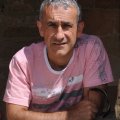
Néstor Etxebarria Loizate
Nestor Etxebarria, Doctor CC Químicas (1993, UPV/EHU), Catedrático (2011, UPV/EHU) y actualmente director del Dpto Química Analítica. Pertenezco al grupo de investigación IBeA (www.ehu.eus/Ibea). También formo parte de la Estación Marina de Plentzia (PiE, www.ehu.eus/PIE). He investigado sobre química en disolución (Tesis Doctoral), implementación del análisis por activación neutrónica para el control de producción de materiales de referencia (postdoct en JRC-IRMM, Bélgica) y sobre análisis ambiental de contaminantes orgánicos y en ecotoxicología ambiental (actualidad). Soy coautor de más de 130 publicaciones científicas e investigador principal de 3 proyectos de la Agencia Nacional de Investigación. He dirigido 13 tesis doctorales y más de 25 tesis de máster. Soy coautor de cuatro libros de texto universitarios y fui coordinador del grado de Química (2008-2011) y actualmente pertenezco al comité académico del Erasmus Mundus Master in Marine Environment and Resource.

Paola Fucini
Paola Fucini: PhD (Max-Planck-Institute for Biochemistry and Ludwig-Maximilians-Universitat, Munchen); postdoctoral studies at Oxford Center for Molecular Science (University of Oxford) and at the Chemical Laboratory (Cambridge University). She focused on the role of the ribosome and development of in-vitro translation systems for the preparation and structural analysis of ribosome complexes (Group leader at Max-Planck-Institute for Molecular Genetics, AG Ribosomen, Berlin and Professor at Frankfurt University). Since 2013 Paola is an Ikerbasque Research Professor (CICbioGUNE) and, with Dr. Connell, aims to develop new antimicrobial agents through structural studies (NMR, X-ray crystallography and Cryo-EM). Research lines: (i) Mechanism of binding and action of antibiotics/translational inhibitors; (ii) Binding mode and mechanism of Ribosome Assembly Factors and Chaperones: Identification of new target sites and development of Specie Specific Translational Inhibitors/antibiotics.

Lucía Gallego Andrés
Universidad del País Vasco UPV/EHU
Lucía Gallego, Graduated in Medicine and Surgery, Master in Recombinant DNA Technology, PhD in Medicine and Surgery. Prof. of Medical Microbiology, Faculty of Medicine & Nursing, University of the Basque Country UPV/EHU. Representative of the Faculty of Medicine & Nursing in the National Plan Against Antibiotic Resistance (PRAN) of the Spanish Agency of Medicines and Health Products (AEMPS). Head of the Acinetobacter baumannii Research Group working on the study of antibiotic resistance and its dissemination through mobile genetic elements among clinical isolates causing serious hospital-acquired infections that have become a worldwide threat as multidrug-resistant isolates have dramatically risen worldwide. Collaborations with international groups from Germany, Egypt, Bolivia and UK, Author of 53 international publications, 9 book chapters, 79 international congress. Participation in 54 research projects, 28 as PI. Supervisor of 12 PhD, 12 MSc, 16 undergraduates, 6 OWSD mentoring

Carlos Garbisu Crespo
NEIKER
Carlos Garbisu, Jefe del Dpto. Conservación de Recursos Naturales de NEIKER. Es Licenciado con Grado en Biología por la Universidad del País Vasco (1984) y Master of Science por el Imperial College of Science and Technology (Londres, 1987). Obtuvo su doctorado en el King’s College London (1992) y realizó estudios postdoctorales en la Universidad de California (Berkeley, 1993-1995). Su carrera científica se ha centrado en el campo de la biotecnología ambiental, principalmente en (1) la biorremediación y fitorremediación de suelos contaminados; (2) el uso de microorganismos como bioindicadores del impacto de las prácticas agrícolas y la contaminación sobre la salud del suelo. Actualmente, focaliza una gran parte de su investigación en el estudio de la diseminación de las resistencias a antibióticos en el medio ambiente. Recientemente, ha sido reconocido por el Gobierno Vasco por la labor investigadora y el mérito científico-tecnológico desarrollado a lo largo de su carrera profesional.
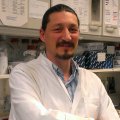
Paul Higgins
Paul G Higgins. PhD (Medical Microbiology, University of Edinburgh) and Post-doctoral research fellow (University of Düsseldorf). Currently group leader at Institute for Medical Microbiology, Immunology and Hygiene, University of Cologne. Research interests: (i) Molecular epidemiology of ESKAPE pathogens and Neisseria gonorrhoeae using whole genome sequencing. (ii) Carbapenem-resistance mechanisms of Acinetobacter baumannii and Klebsiella pneumoniae. (iii) Efflux pump mediated antibiotic resistance. (iv) Taxonomy of the genus Acinetobacter. (v) Differential expression of antibiotic resistance determinants. Member of European Society of Clinical Microbiology and Infectious Diseases and British Society for Antimicrobial Chemotherapy. Regular reviewer of scientific journals: J Antimicrobial Chemotherapy, Antimicrobial Agents and Chemotherapy, and grants: British Society for Antimicrobial Chemotherapy, The British Medical Research Council, among others.

Maite Lacuesta
Maite Lacuesta is a Full Professor of Plant Physiology at the at the UPV / EHU university. She teaches in the Pharmacy and jn Environmental Sciences degrees and also in the master's degrees in Environmental Agrobiology and Innovative Oenology at the same university. She is a membership of the research group on Climate change and bioenergetic crops, which analyzes the interaction of the increase in CO2 and the main associated stresses (temperature, drought, salinity), in the physiology and productivity of plant species of agronomic interest. She has published more than 50 international papers and has participated in numerous research projects, being Research Leader of 10 of them. She is supervisor of 3 doctoral theses, two of them International. Currently she is supervising a PhD focused in teh symbiotic interaction between legumes, and rhizobia strains trying to select efficient inocula that allow plants to improve their productivity in drought conditions. The works is being carried out in conventional and ecological conditions, as a healthier and environmentally sustainable alternative.

Baltasar Mayo Pérez
IPLA-CSIC, Profesor de Investigación
I got a degree in Biology (1981) and a PhD in Microbiology (1988) both at the Univ. of Oviedo, and a postdoctoral stay at the Department of Genetics, Univ. of Groningen (1989-1991). Then I got a researcher permanent position (1995) at “Instituto de Productos Lácteos de Asturias” (IPLA-CSIC; www.ipla.csic.es) a dairy-oriented research institute. My research focuses on the microbiology of traditional dairy products and of the human gastrointestinal tract. Our main aim falls within the selection of technologically- and functionally-relevant microorganisms as starters or probiotic cultures in dairy systems. To this end, full characterization of strains, including safety aspects, is paramount. Key traits such as antibiotic resistance and the production of harmful substances have been used as negative criteria for selection. Since 2012, I am a member of the EFSA FEEDAP Panel for the safety assessment of applications and the writing and approval of FEEDAP´s guidance and scientific opinions.

Usue Pérez López
Usue Pérez es Profesora Agregada de Fisiología Vegetal del Departamento de Biología Vegetal y Ecología de la UPV/EHU. Imparte docencia en los grados de Biología, Bioquímica y Biología Molecular, Biotecnología y Ciencia y Tecnología de los Alimentos y en el máster de Enología Innovadora de la UPV/EHU. Como miembro del grupo de investigación FisioClimaCO2, lleva varios años analizando la interacción del incremento del CO2 y los principales estreses asociados en la fisiología y productividad de diferentes especies vegetales. Los resultados se han publicado en más de 20 publicaciones internacionales y ha participado en diferentes proyectos de investigación. Actualmente, dirige dos Tesis Doctorales sobre interacción de factores asociados al cambio climático en cebada y quinoa, buscando los mecanismos fisiológicos que dichas especies ponen en marcha bajo condiciones climáticas futuras al objeto de buscar características de tolerancia para mantener la seguridad alimentaria en el futuro.

Maria Estilita Ruiz Romera
Estilita Ruiz Romera. Doctora en CC Químicas (UPV/EHU, 1990). Titular Departamento de Ingeniería Química y del Medio Ambiente (UPV/EHU, desde 1990) y acreditada a Catedra (ANECA, junio 2016). Investigación Medio Ambiente (impacto sobre Aguas y Suelos de intervenciones antrópicas), impacto de pesticidas en la actividad microbiana del suelo, evaluación hidro-sedimentaria y contaminación de sedimentos. Cabe mencionar la integración de procesos hidrológicos, químicos y biológicos al estudio de impactos generados en cuencas urbanas fuertemente antropizadas. He participado en 31 proyectos de investigación, 4 europeos (13 como IP), en publicaciones en revistas con JCR, ISBN o libros (total de 75). Contribuciones a congresos (más de 65). En los últimos 10 años, he dirigido 5 tesis doctorales (3 europeas) y 2 en ejecución, una de ellas cotutelada con la Universidad de Toulouse. He dirigido 32 Proyectos fin de carrera; 15 Proyectos de Cooperación con empresas, 12 Proyectos fin de Master.

Mailo Virto Lekuona
UPV/EHU, Catedrática de Universidad
Mailo Virto. Doctora en Ciencias Biológicas (UPV/EHU, 1992). Investigadora en la Fundación INASMET (1990-1993) donde estudió el uso de enzimas en la modificación de lípidos y su aplicación industrial. Desde 1993 Profesora del departamento Bioquímica y Biología Molecular UPV/EHU, Catedrática desde 2019 y miembro del Grupo de investigación Lactiker, donde ha estudiado la bioquímica de la maduración del queso, caracterización de los enzimas coagulantes, relación entre alimentación animal y características nutricionales de leche y queso y relación entre la ingesta de grasa láctea y el desarrollo de enfermedades cardiovasculares. Autora de más de 40 publicaciones científicas en revistas internacionales. Ha dirigido 8 proyectos de investigación financiados por organismos públicos y un contrato con empresa, y ha participado en más de 40 proyectos y contratos. Ha codirigido seis tesis doctorales. Secretaria Académica (2003-2012) y Decana de la Facultad de Farmacia (2012-17)
Prof. Sanz holds a Ph.D. in Biological Sciences from the Universidad de Valencia (1991) and has expertise in several scientific areas like Ecophysiology, Air pollution effects, lower and higher plants, Atmospheric dynamics and chemistry, Nitrogen and carbon cycles, Greenhouse Gasses and other related gases, Greenhouse gas inventories, LULUCF and REDD+. She has been strongly involved in the policy dimension of Climate Change, guiding political decisions carried out at centres such as the FAO (United Nations Food and Agriculture Organisation) or the UNFCCC (United Nations Framework Convention on Climate Change). She has an expertise on multilateral processes, regulatory frameworks, policy measures and instruments of Climate Change Policy, and led the implementation of different programmes with a multidisciplinary-based approach.

Kornelia Smalla
Kornelia Smalla Senior Director and Professor of Julius Kühn-Institut (JKI) -Bundesforschungsinstitut für Kulturpflanzen Institute for Epidemiology and Pathogen Diagnostics. Research interest and expertise: (i) Development and application of new molecular techniques to detect plant pathogens and to study their ecology (plant microbe interaction). (ii) Community-level analysis of structural and functional diversity of microbes in soil and in the rhizosphere (characterisation of succession of antagonists, pathogens and microbial populations in response to environmental triggers). (iii) Evaluation of effects of agricultural management systems on microbial communities, plant and human pathogen abundance. (iv) Ecology and diversity of bacterial antibiotic resistance genes and plasmids, horizontal gene spread. Editor of FEMS Microbiology Ecology, Frontiers in Microbiology, BMC Microbiology, Editorial board of Applied and Environmental Microbiology and Editorial board The ISME Journal (Nature

Manu Soto López
Manu Soto. Professor of Cell Biology (2011, UPV/EHU) and since 2012 Deputy Director of the Plentzia Marine Station (UPV/EHU). Researcher of the Consolidated Research Group on Cell Biology in Environmental Toxicology. European doctoral thesis (1995, UPV/EHU). Studies at University College of Wales, Univ of Innsbruck, Univ Azores and Univ of Wales. He has supervised 7 PhD theses (+3 in progress), master's thesis (18) and bachelor's thesis (7). Interest in the development and application of biomarkers against exposure to metals in aquatic and terrestrial organisms. More than 100 scientific publications and more than 200 contributions in national and international conferences. He has coordinated research projects financed by the Ministry of Education, Economy, Competitiveness, University of the Basque Country, Basque Government, and contracts with municipalities, local and state environmental agencies and private companies. Vice Dean of the Faculty of Science and Technology (2006-2012).
Registration fees
| REGISTRATION | Until 17-07-2020 |
|---|---|
| 65,00 EUR | |
| 55,00 EUR | |
| 20,00 EUR |
Sustainable development goals
Agenda 2030 is the new international development agenda approved in September 2015 by the United Nations. This agenda aims to be an instrument to favour sustainable human development all over the planet, and its main pillars are the eradication of poverty, a reduction in equality and vulnerability and fostering sustainability. It is a unique opportunity to transform the world up to 2030 and guarantee human rights for all.

3 - Good health and well-being
Guarantee a healthy life and foster the well-being of all people of all ages. Key issues: universal healthcare coverage, sexual and reproductive health, reduction in the number of road accident casualties, pollution and chemical products, reduction in maternal and neonatal mortality, the end of epidemics such as AIDS, combating hepatitis and other water-borne diseases, drug and alcohol prevention, control of tobacco.
More information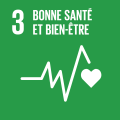
6 - Clean water and sanitation
Guaranteeing the availability and sustainable management of water and sanitation for everyone. Key issues: universal and fair access at an affordable price, access to sanitation and hygiene services, water quality, efficient use of water resources, end-to-end management, protection of water ecosystems, reduction of pollution, elimination of waste discharges, wastewater treatment.
More information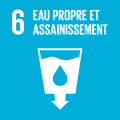
12 - Responsible consumption and production
Guarantee sustainable modalities of consumption and production. Key issues: sustainable management and efficient use of natural resources, reduction of chemical particles released to the atmosphere, water and soils, reduction of waste products, recycling, reuse and reduction, sustainable practices, sustainable public procurement, sustainable lifestyles, rationalisation of inefficient subsidies for fossil fuels.
More information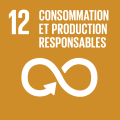
15 - Life on land
Protect, establish and foster the sustainable use of terrestrial ecosystems, manage forests sustainably, fight desertification, hold back and reverse the degradation of land and delay the loss of biodiversity. Key issues: the fight against desertification, reforestation, conservation, the regeneration and sustainable use of terrestrial ecosystems, natural habitats, biodiversity, invasive exotic species, integration of the values of ecosystems into planning, poaching.
More information